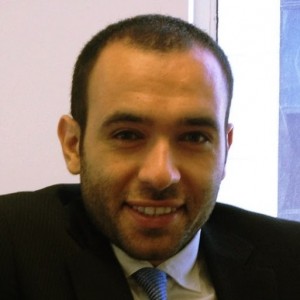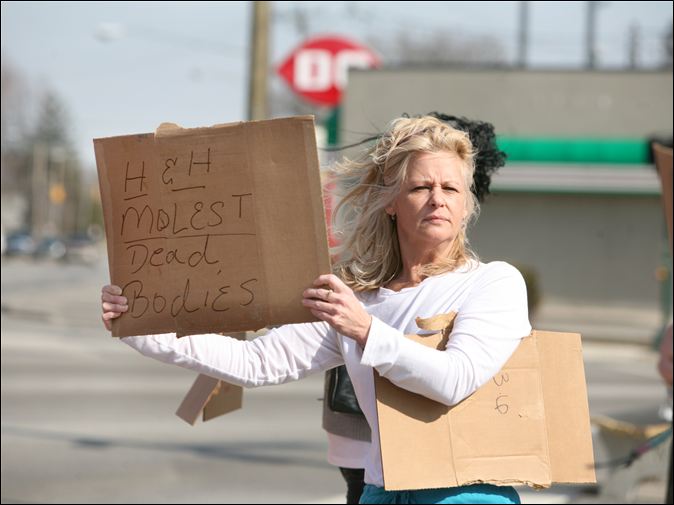Consumer Advice from The Funeral Home Abuse Attorney
“I was pretty certain it wasn’t my wife – unless she did some awful changing,” said Evans Davidson, the bereaved widower whose wife’s body was in a funeral body mix-up at the Simpson Mortuary in Inglewood, CA. Unfortunately, mistakes and negligence like body mix-ups happen in the funeral business. And when they do, there are lawyers like Farid Yaghoubtil who can help in reparations.
Here’s some legal advice from Farid, which is valuable for both the funeral consumer as well as the funeral director:
*****
Funeral home abuse is common in today in the U.S., however victims are often not aware of their rights. In fact much of the information published regarding funeral home negligence does not discuss the important issues. Family member of the deceased have a claim for the significant emotional and psychological distress caused by dealing with such an event. Court and juries also recognize the impact such actions can have on the families in an already difficult and stressful time. If you are the victim of a any type of funeral home abuse read the following article outlining your rights.
Funeral Home Negligence Liability
Negligence is defined as a sub-standard level of care. When the funeral home fails to render appropriate service you will have standing to bring a cause of action for negligence. In most cases proving negligence is not a challenging issue. However, proving whether you have standing to sue is. standing is required in any cause of action. It essentially means that you are in a position to bring forth a lawsuit for your injuries. The paragraph below outlines some of the basic elements of who can sue or who has standing to sue in funeral negligence cases.
A funeral home will be found negligent when they failed to conduct services for which they were contracted for. This can include improper burial in accordance with the family’s wishes, negligent embalmment and more. In certain cases funeral homes will mishandle a body entirely. This will include swapping or misplacing the deceased body entirely.
In cases where the wrong body was given for burial the family will be able to pursue a claim for their injuries. Injuries can include serious emotional distress, which can manifest into physical ailments.
If it can be proven that the actions of the funeral home were intentional, punitive damages are also possible. Intent can also be proven through gross negligence in certain circumstances. With intent punitive damages are possible. Punitive damages allow for enhanced damages and serve to punish the defendant for their actions. In certain cases punitive damages have been allowed.
Who Can Sue for Damages?
Courts permit recovery for funeral home negligence to a certain class of family members. Potential plaintiffs include those who the funeral home owe a duty to. This includes family members who had knowledge of the services being performed.
Section 7100 of the business and professions code specifically points out who is permitted to bring a cause of action for damages. According to this section the following parties are permitted to bring forth a cause of action, they include:
– Surviving spouse;
– Any surviving child or any children of the now deceased party;
– Surviving parent or parents of the now deceased party;
– Those permitted or names in the order of succession who are entitled to the estate of the deceased; or
– Public administrators when the deceased has enough assets.
In certain cases courts have restricted the recovery to only those persons who can establish a direct link between the conduct and emotional distress. Courts have reasoned that in order to avoid the wholesale filing of lawsuits against funeral homes there must be a identified group of parties who can bring a cause of action.
It is also important to mention that there must be some type of emotional or physical manifestation with regards to your injuries. You must have some type of emotional, psychological or physical harm suffered as a result of the funeral home negligence. This injury can manifest itself in a number of different way. When considering to file a lawsuit you should speak with your attorney about any therapy or counseling you may required or are seeking.
Witnessing a deceased loved ones remains being mishandled is a traumatic experience for anyone. It can have long lasting impacts on the mental wellbeing of the witnessing party. Feelings of distress, anxiety, PTSD are all possible and can be amplified depending on your relationship with the deceased party.
While not all parties can move forward on a claim it is important to get your case evaluated. There are often many statutory filing timelines which need to be addressed.
Types of Funeral Abuse Cases
There are countless acts which can be considered funeral home abuse or neglect. This is not an entire list, if you feel that there was abuse, we strongly suggest you have your case evaluated.
– Removal of bodily remain- this is considered a felony in certain jurisdictions
– Sexual assault of the deceased
– Negligent entrustment
– Negligent embalmment
– Mismatching or incorrectly burying the wrong body at a funeral
– Loss of remains
– Loss of the body at time of the funeral
– Misconduct done in private by funeral home
– Mishandling of remains
Each of these cases requires careful evaluation of the facts. If you are interested in bringing forth a lawsuit for injuries, it is important you communicate this intent with your family. Often times it will make sense to include all parties who were there are the service in any suit you decide to bring. These issues will be discussed with your attorney.
Steps to Take in Funeral Negligence Cases
If after reading this article you feel you may have a case, follow these important steps to prepare for your case.
First, prepare the names of all family members who may be interested in pursuing a case. Remember not all parties are permitted to file a lawsuit, but it is advisable that you collect the names of all persons present at the time of the service.
Second, make absolutely no statement to any insurance company. Often times these statements can be harmful to your claim. Even if the funeral home is offering a settlement, speak with an attorney. If you decide to settle make sure it is a viable offer. Insurance companies will often short change or low ball you with their offers.
Third, speak with a personal injury attorney regarding your case. Downtown L.A. Law Group offers free consultations on all cases without charge to you. If we decide to accept your case, it will be done on a contingency fee basis. Our no win no fee guarantee assure that unless we are successful you will owe absolutely nothing in fees.
*****
 1. Law Firm Website: http://downtownlalaw.
1. Law Firm Website: http://downtownlalaw.Farid Yaghoubtil is a senior partner at Downtown L.A. Law Group, handling many types of litigation matters. He can be reached via e-mail at farid@downtownlalaw.com

